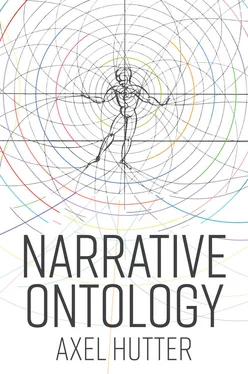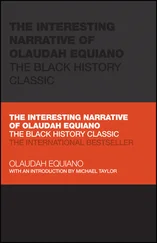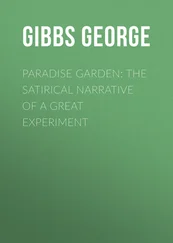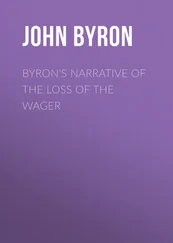On numerous occasions, he declares that there is one question around which his thinking and writing constantly revolve. As prepared as he is, though, to address this one question as a ‘question of faith’, he maintains a distance to the traditional concepts of belief and disbelief: ‘Belief? Disbelief? I barely know what the one is and what the other is’; ‘Deepest scepticism regarding both, so-called belief and so-called disbelief, is my only identification if one catechizes me’ (1994, 297). One can see here a fundamental feature of Thomas Mann’s intellectual physiognomy. He maintains equal sceptical distance to belief and disbelief because he suspects that both lack sceptical distance by taking their own matter, whether it be disbelief or belief, too literally . In this way, they fail to gain that peculiar freedom of understanding which always presupposes a sceptical and ironic distance to what is literally given. For this reason, Thomas Mann believes this belief, which distances itself equally from ‘so-called’ disbelief and belief – both of which, in their unfree fixation on the literal, fail entirely to understand what they ‘disbelievingly’ deny or ‘believingly’ affirm – is to be found precisely in this freedom of understanding.
The sceptical and ironic freedom towards literal being, characteristic for Thomas Mann, is made exemplarily clear in his decisive rejection of every ‘piety’, starting from the given world: ‘But what does one demand that I believe? A “God” that the Einsteinian universe created and for this demands prostration, worship, unlimited subjugation? Why indeed. The Einsteinian universe could be still much greater and more complicated as it obviously is and would still allow me a posture completely free of enthusiasm towards its creator’ (297). According to Thomas Mann, God does not reveal Himself in any being of any kind, however great and complicated it may be. God reveals Himself at most in meaning, and indeed not in this or that meaning but rather in meaning as such – that is, in the primordial phenomenon of being intelligible and in the enigmatic capacity of humans being able to distance themselves sceptically and ironically from all being in the desire for understanding. In other words, God reveals Himself at best in that enigmatic freedom that allows what is sensually given to become a question to human beings, to become the letter of a text that they are not to affirm or deny blindly, but rather to understand .
Thomas Mann expresses this conviction as follows: ‘We are so densely surrounded by the eternal enigma that one would have to be an animal to drive it out of one’s mind merely for one day’ (297). The sentence is at the same time an example of the fact that Thomas Mann’s remarks can be understood correctly only when one succeeds in allowing the string on which the respective remark is ‘tuned’ to resonate in the resonance body of the history of spirit and philosophy. In the present case it is – as it often is – a comment by Schopenhauer that Thomas Mann varies and adapts.
Schopenhauer’s comment reads as follows: ‘No beings, with the exception of man, feel surprised at their own existence’ (1969b, 160). The difference between human beings and animals consists, then, precisely in this enigmatic freedom – that is, that human beings do not simply accept the self-evidence of being as given, but instead become themselves a question, an enigma. And yet human being is no ordinary enigma that does not know, itself, that it is one; on the contrary, the enigma of human being consists precisely in that human beings become an enigma to themselves , that they wonder at their capacity to wonder, that they want to understand their desire to understand.
The wonder with which Schopenhauer, like Plato and Aristotle, situates the beginning of philosophy is not directed at an enigma separate from the wonder; rather, the wonder itself is the enigma. The enigma of human beings is a capacity to wonder, which radically distinguishes them from all natural beings. In the enigmatic capacity to wonder at being in general and at one’s own existence in particular, there lies an ironic distance to being. This freedom awakens the question concerning the meaning of being, and with it the almost even more enigmatic capacity of humans for language , to interpret, to read the literal with a view to understanding the meaning.
It is now possible to articulate much more definitely the thesis mentioned at the beginning that the human self is no object but rather a subject: I, as a human being , am what I am as an ‘I’ by relating to myself, becoming an enigma to myself and seeking to interpret myself. Or, in other words, the enigma of human being consists in the fact that we are beings who seek to understand themselves, and yet in the first instance fail to understand themselves.
For this reason, for Thomas Mann, the question of humans concerning themselves is the clear sign for the fact ‘that humans are beings that share in spirit and that the religious element lies enacted in them, in their duality of nature and spirit. Their position in the cosmos, their beginning, their origin, their aim – that is the great mystery, and the religious problem is the human problem, the question of humans concerning themselves’ (1994, 297). Human being’s unique position in the cosmos consists precisely in that this position is a position towards the cosmos. Human being is not only an object within the world, but equally a subject that faces the world as such insofar as the world is an enigma and the meaning of the world is something one enquires into. The peculiar dialectic in the way human being takes an ironic distance towards the literal being of the world consists, however, in that it is firstly in this distance from being that the possibility of a genuine proximity towards being is opened up: the proximity of understanding.
The enigmatic freedom of the human desire to understand, together with the sceptical and ironic distance to the literal being of nature, is for this reason the question that occupies Thomas Mann in his thinking and writing: ‘If I call a conviction or a religio my own, then it is the conviction that there has never been a stage at which humans were only nature and not yet spirit . The fashionable tendency to “trace them back” to such a stage, the mockery of ideas of the time, is most deeply abhorrent to me. Humans have never begun and never stopped to take aim at the absolute, the idea, out of the antinomies of their spiritual and carnal double being’ (298).
Distance to all being, which distinguishes human beings in their linguistic freedom, finds expression, then, for Thomas Mann, especially in one’s ironic self-distancing from ‘carnal’ being as thus and so; this self-distancing makes human being into a carnal–spiritual or being–meaningful double being that, in the free understanding of meaning, takes aim at that which there is to understand in the understood meaning: the idea or the absolute. For this reason, the tendency ‘to trace back’ the human double being to the literal being of nature is for Thomas Mann at the same time a mockery of ideas and a mockery of human being – that is, fundamentally inhuman, indeed the actual root of all inhumanity. An ontology of meaningless being that traces the fundamental double aspect of reality, the inherently differentiated unity of being and meaning – as it is experienced in each interpretation, each act of reading and understanding – one-sidedly to the dead letter thus amounts to destroying human being. And, given that such an ontology of meaningless being can itself be drafted by humans as the ‘meaning’ of being, it is the unsettling proof of the human capacity for self-alienation from oneself, going as far as self-destruction.
Читать дальше












